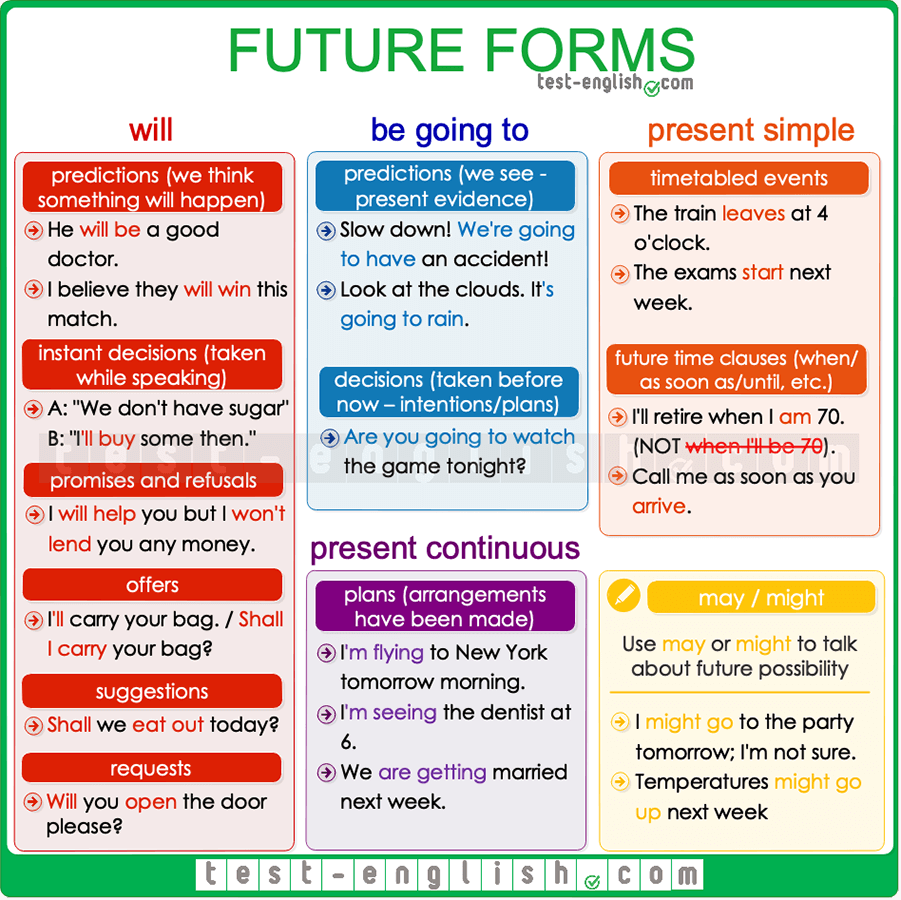Will or Be going to?
Predictions
We use “will” to make a prediction with little evidence; for instance, when we think something will happen. On the other hand, we use “be going to” to make a prediction when we have seen some evidence, such as when we see something is going to happen.
For example:
- We need to hurry up. We’ll be late for the conference.
- (=I think we will be late)
- The conference starts in 10 minutes. We are going to be late.
- (=I can see that we cannot be at the conference in 10 minutes)
Intetions or Decisions
We use “will” for immediate intentions or decisions, typically in the moment of speaking without prior planning. On the other hand, we use “be going to” when we’ve already made a decision in our mind or when there is a pre-existing plan or intention.
For example:
- ‘Sarah said she needs to talk to you.’ ‘Oh, I didn’t know. I’ll call her in a minute.’
- (=The decision was taken while having this conversation)
- ‘Sarah said she needs to talk to you.’ ‘Yes, I know. I’m going to call her in a minute.‘
- (=The decision was taken before having this conversation)
Other Future Forms

Image source: Future forms – will, be going to, present continuous - Test-English
References